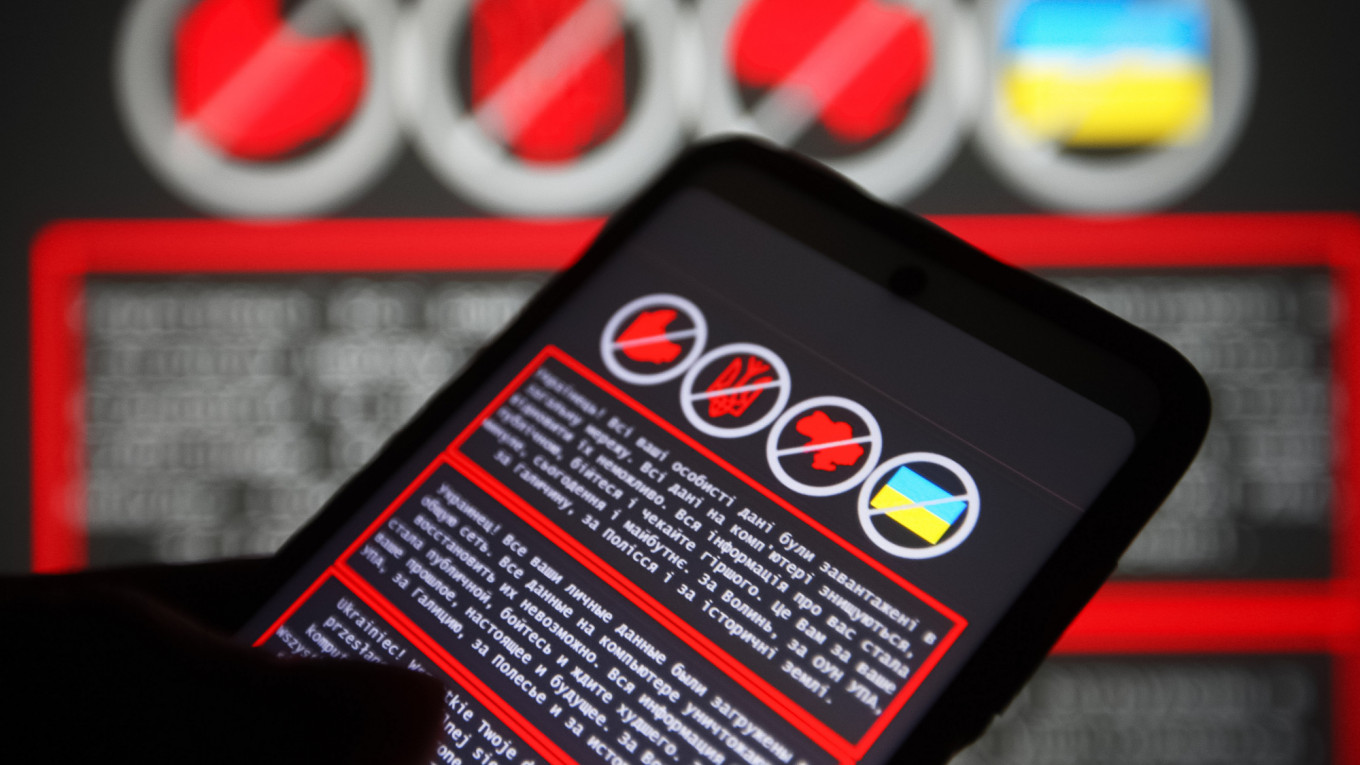A handful of hacker groups aligned with the Russian government have carried out hundreds of cyberattacks against Ukraine since Moscow invaded, U.S. tech giant Microsoft said in a report Wednesday.
It added that in "hybrid" warfare tactics, Russia often matches cyberattacks with military assaults on the battlefield.
"Starting just before the invasion, we have seen at least six separate Russia-aligned nation-state actors launch more than 237 operations against Ukraine," said Microsoft, which is working with Ukrainian cybersecurity experts and private companies to counter such attacks.
It said the cyber-warfare included "destructive attacks that are ongoing and threaten civilian welfare."
In the first week of the invasion, the report said Russian hackers attacked a major Ukrainian media broadcaster on "the same day the Russian military announced its intention to destroy Ukrainian 'disinformation' targets and directed a missile strike against a TV tower in Kyiv."
It said the aim of such coordinated attacks was to "disrupt or degrade Ukrainian government and military functions and undermine the public's trust in those same institutions."
Microsoft said it had tracked almost 40 destructive cyberattacks, aimed at hundreds of systems, a third of which had directly targeted Ukrainian government organizations at all levels, from the national to the local, while another 40 percent had gone after critical infrastructure.
Some of these were so-called "wiper attacks" which delete vital data in the hacked computer system.
The hackers used an array of techniques to gain access to the Ukrainian systems, such as "phishing, use of unpatched vulnerabilities and compromising upstream IT service providers."
"These actors often modify their malware with each deployment to evade detection," the report said, noting that the cyber-attackers had begun preparing their campaign as early as March 2021, almost a year before President Vladimir Putin ordered his troops to invade Ukraine.
"When Russian troops first started to move toward the border with Ukraine, we saw efforts to gain initial access to targets that could provide intelligence on Ukraine’s military and foreign partnerships," it said.
Microsoft noted it was "likely the attacks we've observed are only a fraction of activity targeting Ukraine."
A Message from The Moscow Times:
Dear readers,
We are facing unprecedented challenges. Russia's Prosecutor General's Office has designated The Moscow Times as an "undesirable" organization, criminalizing our work and putting our staff at risk of prosecution. This follows our earlier unjust labeling as a "foreign agent."
These actions are direct attempts to silence independent journalism in Russia. The authorities claim our work "discredits the decisions of the Russian leadership." We see things differently: we strive to provide accurate, unbiased reporting on Russia.
We, the journalists of The Moscow Times, refuse to be silenced. But to continue our work, we need your help.
Your support, no matter how small, makes a world of difference. If you can, please support us monthly starting from just $2. It's quick to set up, and every contribution makes a significant impact.
By supporting The Moscow Times, you're defending open, independent journalism in the face of repression. Thank you for standing with us.
Remind me later.






